Roguebook is a roguelike deckbuilder you can win with an army of frogs
At least, that's how Richard Garfield likes to play it.
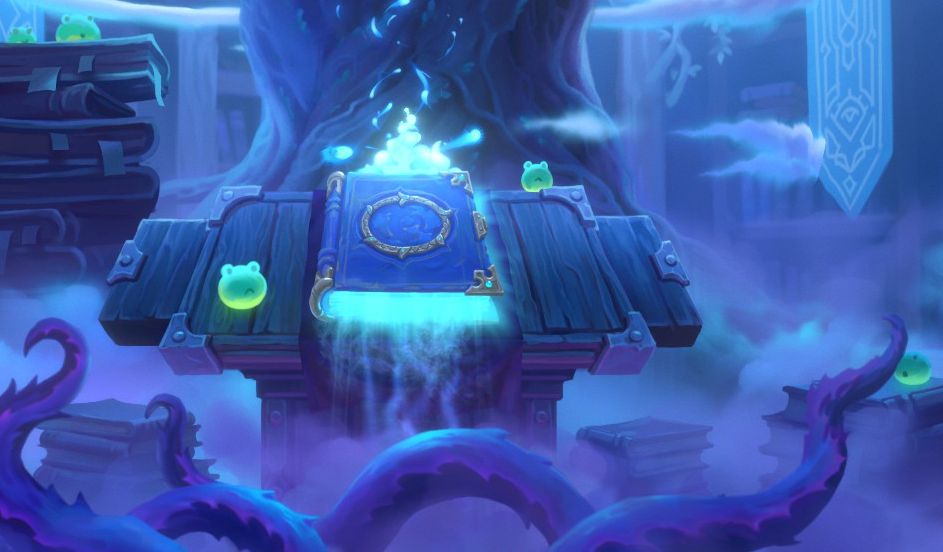
In one of your hands, hold deckbuilders—a genre that transforms the work of assembling a competitive deck of cards in a CCG into the actual play of the game, like Dominion. In your other hand, you take run-based permadeath games—roguelikes and their relatives. Smoosh those hands together and you end up with roguelike deckbuilders, games where you assemble a deck to survive an escalating series of challenges, or fail and get shuffled out of existence. Games like Dream Quest, Slay the Spire, and Monster Train, as well as ones that tweak the formula, whether by adding 3D action combat like Hand of Fate, or swapping cards for dice as Dicey Dungeons does.
Roguebook is a roguelike deckbuilder currently in development, and it comes with a solid pedigree. Not just because it's co-designed by Magic: The Gathering creator and godfather of the CCG Richard Garfield (he calls his role on Roguebook that of a design advisor who is "certainly not the principle designer" but "hopefully an important contributor"), but because it's also the work of Abrakam Studios.
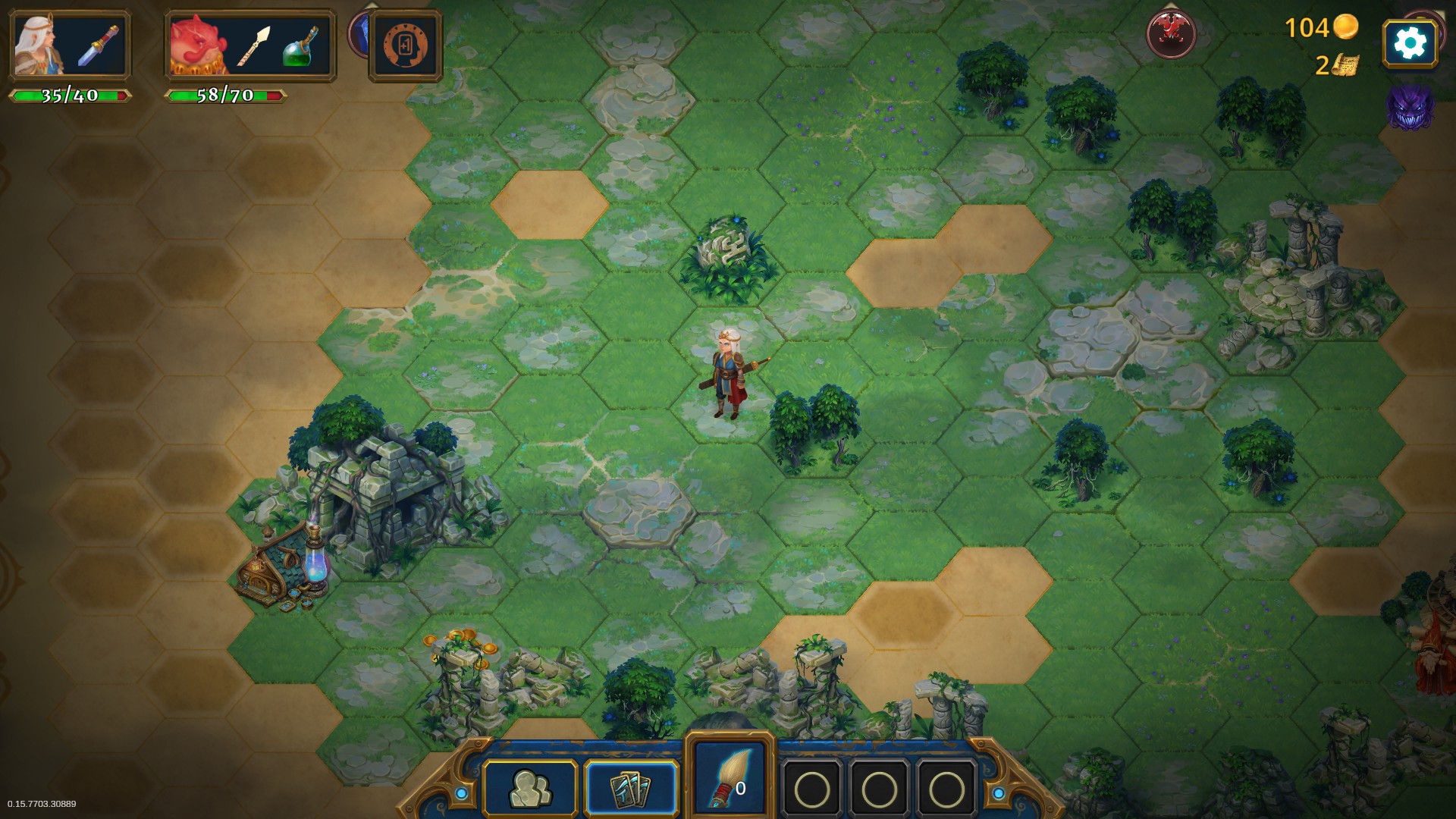
Abrakam created a digital CCG called Faeria, which was itself a union of genres—replacing the imaginary tabletop common among digital card games with an ocean map made of hexagons where you summon islands like you're playing Settlers of Catan, and then summon creatures to march across them. Faeria caught Garfield's eye. "I played a lot of the digital card games, naturally," he says, "and Faeria really brought something special to the table with its use of the board game—it felt like a cross between a board game and cards, which I've heard claimed a bunch of times, but it didn't always seem like a happy marriage. But with Faeria they really got it to work."
Roguebook builds on that idea. It's got a map as well, one that represents the inside of a magical book you're traveling through, another grid of hexagons that grows—this time, as you spend ink to uncover more of its areas. With luck, you uncover treasure, alchemists who will transform your cards for a fee, or rolled-up pages that can be spent to unlock permanent perks at the end of each run.
In an early version of Roguebook there was no ink. Instead you collected torches to push back darkness, a much more standard fog of war mechanic that didn't fit the flavorful theme of a world inside a book. It's a world made of paper, and you're lighting fires? Ink is a much better fit. Garfield is quick to point out that he wasn't responsible for this change, but definitely considers it an improvement. It immediately suggested more ideas—like brushes that spread ink evenly while vials spill it in straight lines, and so on. "That suddenly brings around all these mechanics," he says. "Different magical inks, different ways of doing it. So in addition to just the flavor change it naturally supports these mechanical plays."
Frogs all the way down
Painting new areas also uncovers enemies, and the fights seem familiar right away. Enemies announce how much damage they'll do, and you play block cards to mitigate that and attack cards to damage them in return. The first notably different thing is that you always have control of two characters, and your cards are colored to match the hero who plays them. Some cards are cheaper if played by the hero at the back, others are more effective if played by the hero in front, and some cards swap the heroes in addition to whatever other effect they have. Like in Faeria, where your creatures could flank or block, positioning matters.
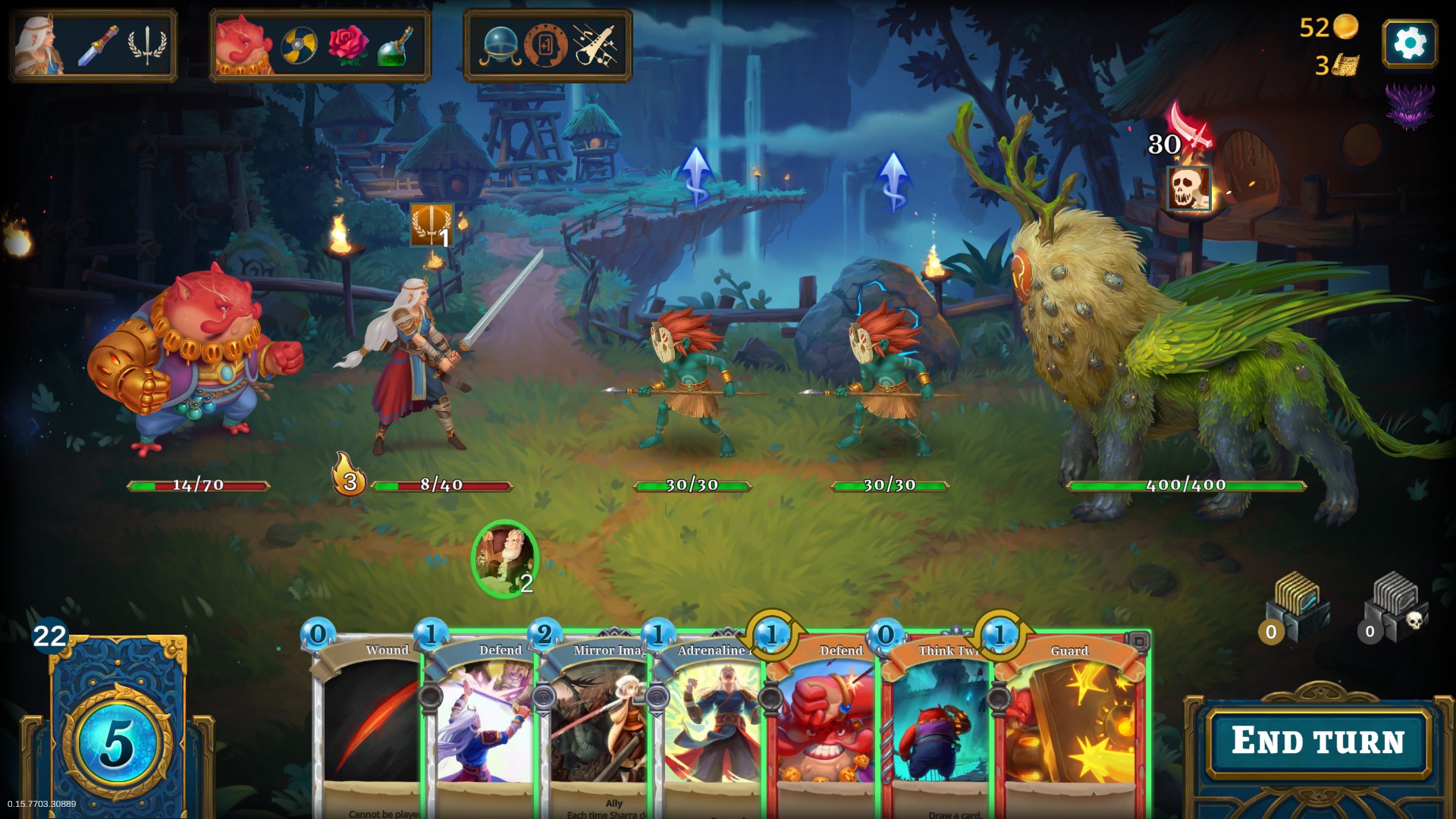
Garfield says he's partial to having the turtle hero, Aurora, in his team. "The turtle hero can generate frogs," he explains. "They're a follower that you can have stacked, so you can have 12 frogs for example, then they'll do 12 damage and their number will be reduced by one. It's a little like going for a poison deck or something like that." There are also synergies with cards that give additional bonuses if you have allies in play, or let you add more frogs, up their damage, and slow the rate they're removed. It sounds kind of like the degenerate decks that were possible in the early days of Magic: The Gathering, and may well be nerfed before release. "It's a low-hanging fruit as far as combos are concerned," Garfield says, "but getting my frog on is always fun."
Keep up to date with the most important stories and the best deals, as picked by the PC Gamer team.
The next noticeable difference in Roguebook is that you earn abilities for having more cards in your deck. It's like leveling up, and you're given three options each time. You might make the prices in shops 25 percent cheaper, or get the ability to heal a few points of health after each fight, or start fights with an ally in play who provides bonus mana (called spirit in Roguebook), and also does a couple of points of damage each turn.
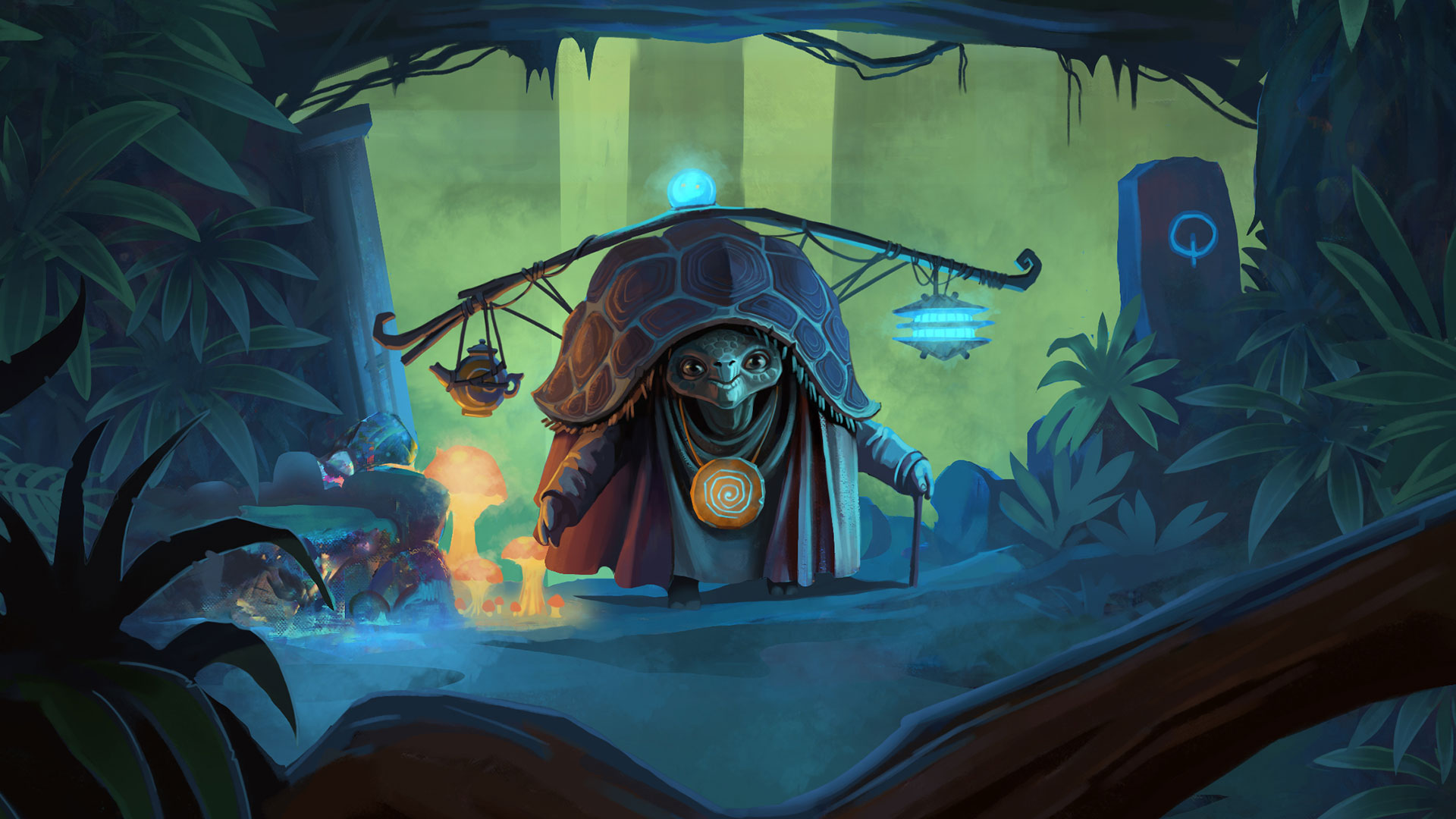
"One of my specific contributions was to get us thinking along this path of, 'Let's make it better to add cards to your deck in some way.' That led to this idea that the bigger your deck gets the more talents you get to unlock—it's not just diluting the quality of your deck. I really like pushing people down that path because larger decks are less reliable and so I think you ought to be rewarded more for playing them. You're thinking on your feet, you're adapting to the situations more."
That's quite different to Slay the Spire, where trimming your deck is often the best choice—a reward for sensible, boring play. Garfield says he has "a long-term dislike from the days of Magic" of making his deck better by getting rid of a card "that's really pretty cool, but I can't quite get value out of it. I hate that." It's why he enjoys playing Hearthstone in Arena mode, where you draft a deck out of random sets of three cards. "I get plenty of choices where it's all cards that aren't really great, but some of them are more interesting and I have to play with them all, so it's how well I do with that. That is the payoff for me."
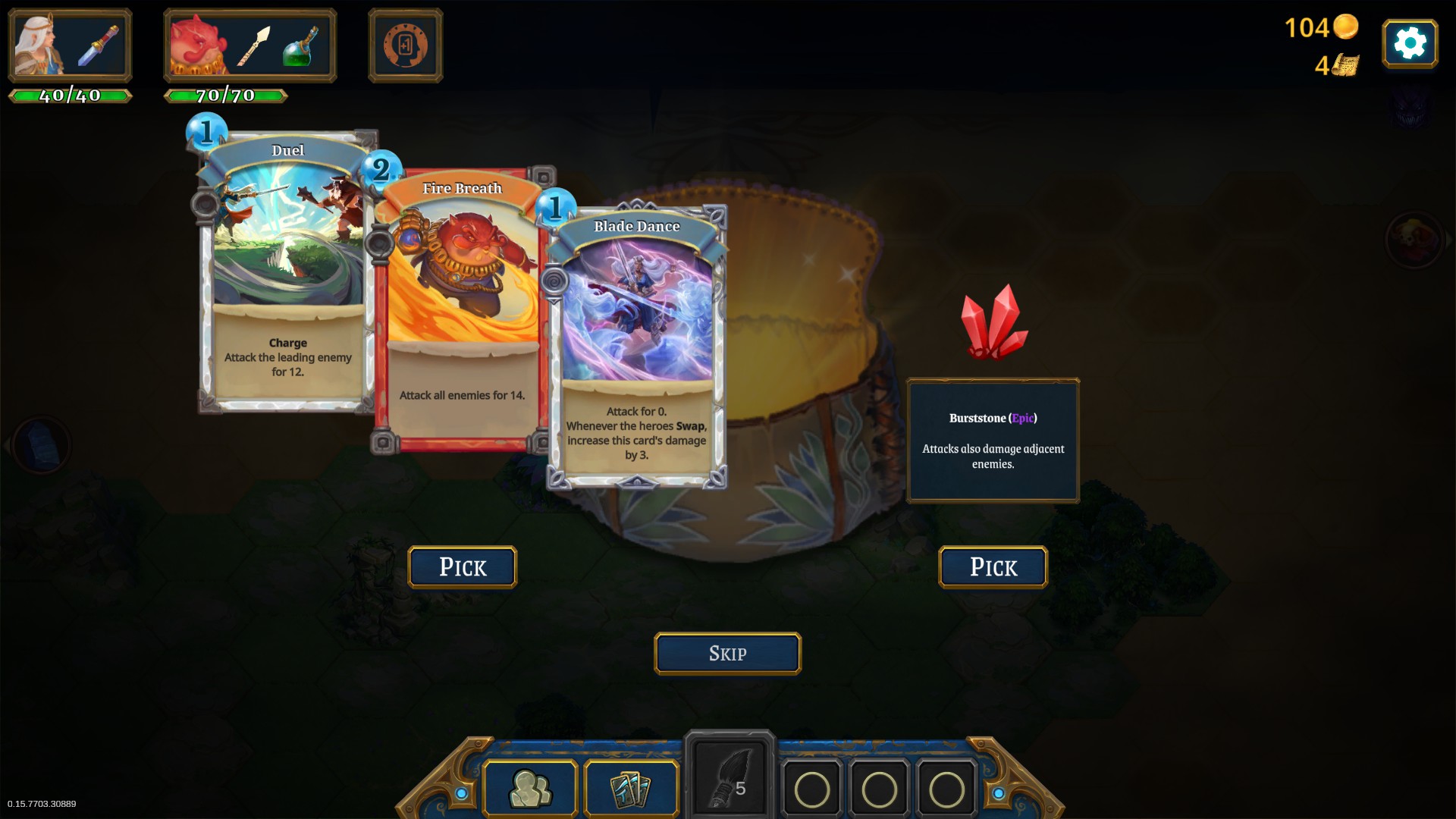
Know when to hold 'em
Being able to react to what you're dealt is an important element of physical card games, but one their digital counterparts often minimize—encouraging lean decks that cycle through cards fast enough to guarantee you'll draw the combo you need. The skill becomes identifying the most outrageously broken combos and knowing how to efficiently wipe away everything else. In the words of noted game designer Kenny Rogers, "The secret to survivin' is knowing what to throw away, and knowing what to keep." But it can also be fun to be spontaneous, to look at the hand you draw and improvise a solution to your immediate problem with whatever chance has given you.
"That's the hallmark more of a card player than a board game player," Garfield says. "In card games you often have to deal with what you're dealt and it's the person who gets the most out of that, rather than expecting to win or go in with the same strategy. Like, you don't play poker and think, 'I'm gonna bluff every third hand.' You have to adapt to what you're dealt, so when that gives me a strategy that's great. Although sometimes I do actually want to pursue the frogs."
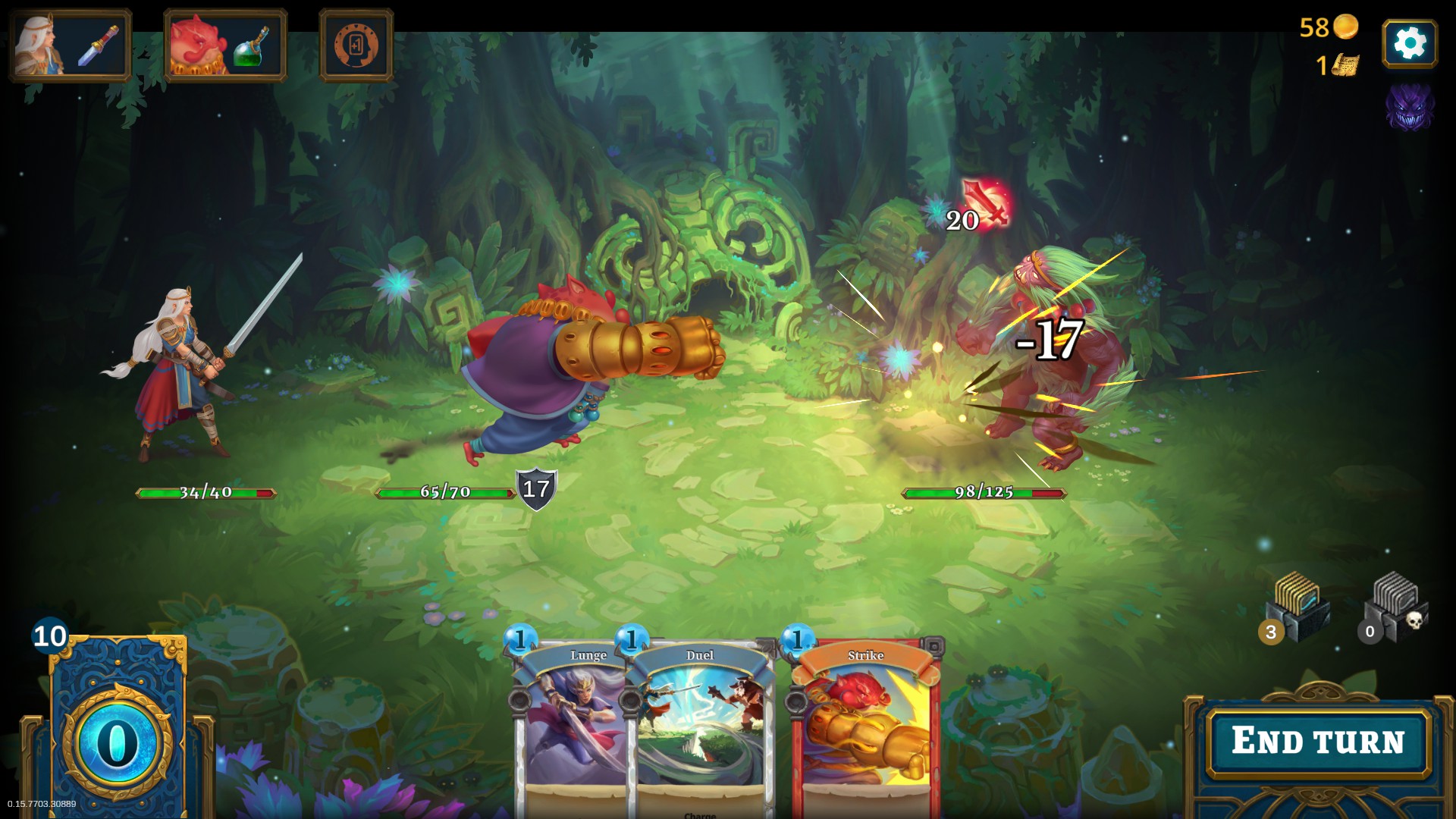
Back when he was designing Magic: The Gathering, Garfield had no idea he was creating a whole new kind of game, one so successful it would still be spinning off subgenres and mutations like this decades later. "It would be impossible for me to have anticipated anything remotely like what it ended up," he says. "I know that the first couple years after Magic came out I was perpetually in a state of wonder."
He's happy to keep exploring the possibilities, and see what other designers do as well. "I think it's a very rich area that I stumbled across in design space," he says. "I continue to be entranced by things other people do with the concept, and still feel like it's a lot of fun exploring it myself."
Roguebook is scheduled to release on Steam in June, 2021.

Jody's first computer was a Commodore 64, so he remembers having to use a code wheel to play Pool of Radiance. A former music journalist who interviewed everyone from Giorgio Moroder to Trent Reznor, Jody also co-hosted Australia's first radio show about videogames, Zed Games. He's written for Rock Paper Shotgun, The Big Issue, GamesRadar, Zam, Glixel, Five Out of Ten Magazine, and Playboy.com, whose cheques with the bunny logo made for fun conversations at the bank. Jody's first article for PC Gamer was about the audio of Alien Isolation, published in 2015, and since then he's written about why Silent Hill belongs on PC, why Recettear: An Item Shop's Tale is the best fantasy shopkeeper tycoon game, and how weird Lost Ark can get. Jody edited PC Gamer Indie from 2017 to 2018, and he eventually lived up to his promise to play every Warhammer videogame.

